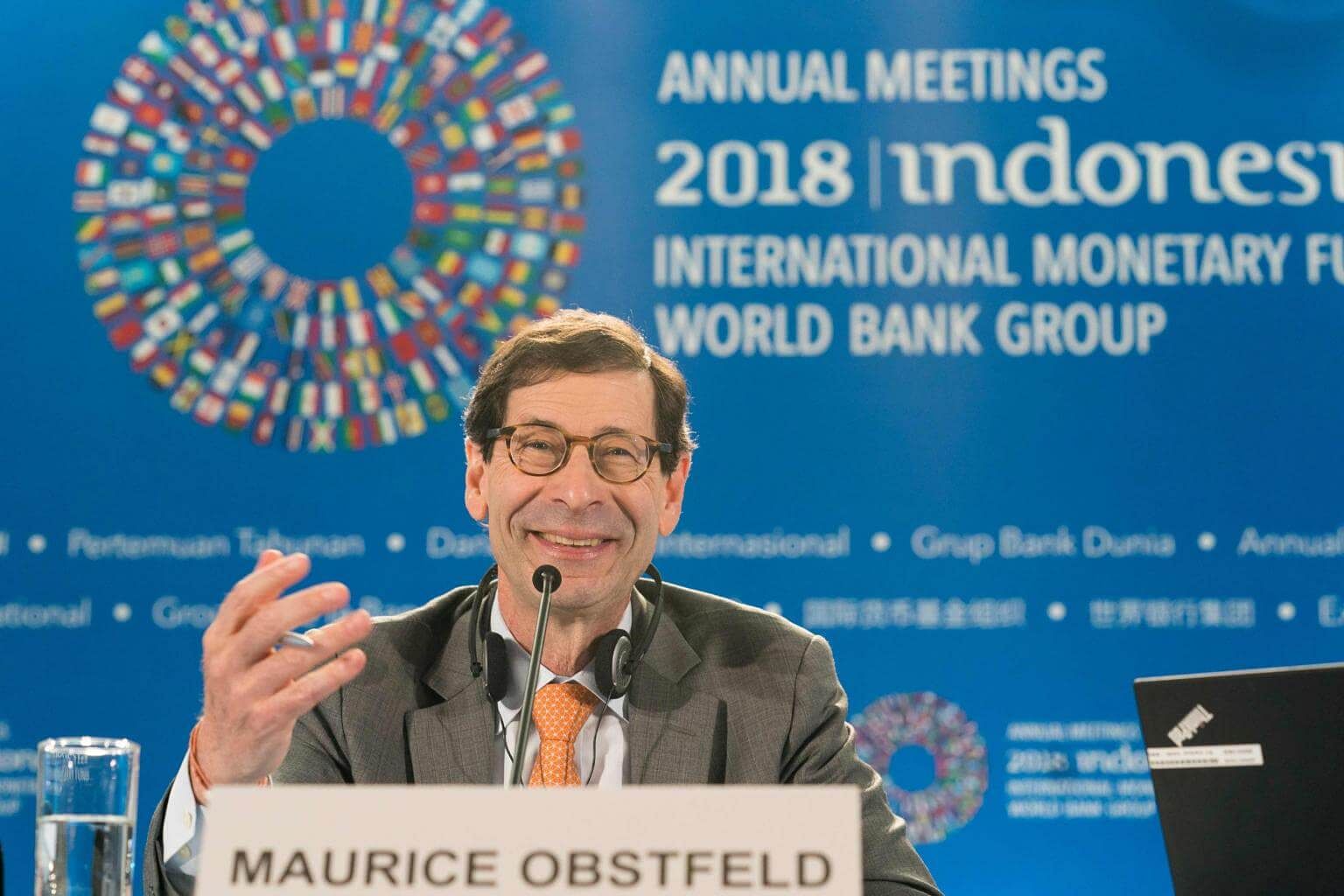Indonesia's rupiah slump must be seen in context: IMF chief economist
Sign up now: Get insights on Asia's fast-moving developments

IMF chief economist Maurice Obstfeld speaking at a World Economic Outlook press conference in Nusadua, Bali, on Oct 9, 2018.
PHOTO: AFP
BALI - The Indonesian rupiah slump must be seen in context, stressed International Monetary Fund (IMF) chief economist Maurice Obstfeld, as he cautioned against taking an overly pessimistic view of the currency.
The rupiah has in recent months tumbled to a two-decade low, stoking fears of a new financial crisis.
But Dr Obstfeld said: "It's important to realise... that the gradual tightening of monetary policy in the US, the approach of more tightening in the Euro area, and the general tightening of financial conditions facing emerging markets throughout the world is a common factor that a number of countries are contending with."
The matter at hand, taking into account global developments, is really the strength of the US dollar, he told a press briefing on the world economic outlook at the IMF-World Bank meetings in Bali on Tuesday (Oct 9).
"One way to gauge this is to note that even though the rupiah this year has depreciated against the dollar by something like 10 per cent, its depreciation on a weighted effective basis against its trade partners is only 4 per cent," said Dr Obstfeld. "So one doesn't want to exaggerate that extent of the issue."
And, the Indonesian growth story has been that of real success, he said, striking another positive note amid continued anxiety over the rupiah's fall.
Despite factors such as tighter global financial conditions, and the long shadow cast by US-China trade tensions, growth in Indonesia is still expected to be fairly strong.
An IMF report in February projected Indonesia's GDP growth rate this year at 5.3 per cent, compared with 5.1 per cent last year.
Noting that the population's income has been on the rise, Dr Obstfeld said the government should seize this moment to do more to lift its people.
"For countries of Indonesia's income level, we should think that there might be a higher level of cash revenue which would allow investments in the educational system, in infrastructure, in the social safety net - all of which would be very beneficial to the people," he said.
"So our advice (to such countries) would be to look at those issues, to try to raise the agility of the workforce, to raise the capital of the workforce, to fight further against inequality - which has come down in Indonesia in recent years."
Indonesia's Finance Minister Sri Mulyani Indrawati on Monday mounted a robust defence of the health of her country's economy.
"Our banking industry is healthy. Our GDP still grows 5 per cent, our state budget deficit is narrowing, inflation is low," she told reporters. "We are confident that if we maintain our economic flexibility, we will be able to adjust ourselves to the present global economic developments."
She also denied rumours that the Indonesian government was hosting the IMF-World Bank meetings, which will take place in Bali until Sunday, in the hope of a loan from the IMF.
The fund, said Dr Sri Mulyani, would only give assistance to countries in the midst of crisis - and Indonesia was in no such state.
In fact, IMF managing director Christine Lagarde had told her that Indonesia's economy is in good condition, she added.
Ms Lagarde - who on Monday visited Lombok, which was hit by a series of earthquakes in July and August - said an IMF loan was not an option because "the Indonesian economy does not need it".
She said it is "being very well managed" by President Joko Widodo, Bank Indonesia Governor Perry Warjiyo, Dr Sri Mulyani, Indonesia's Coordinating Minister for Maritime Luhut Pandjaitan, and their colleagues.


